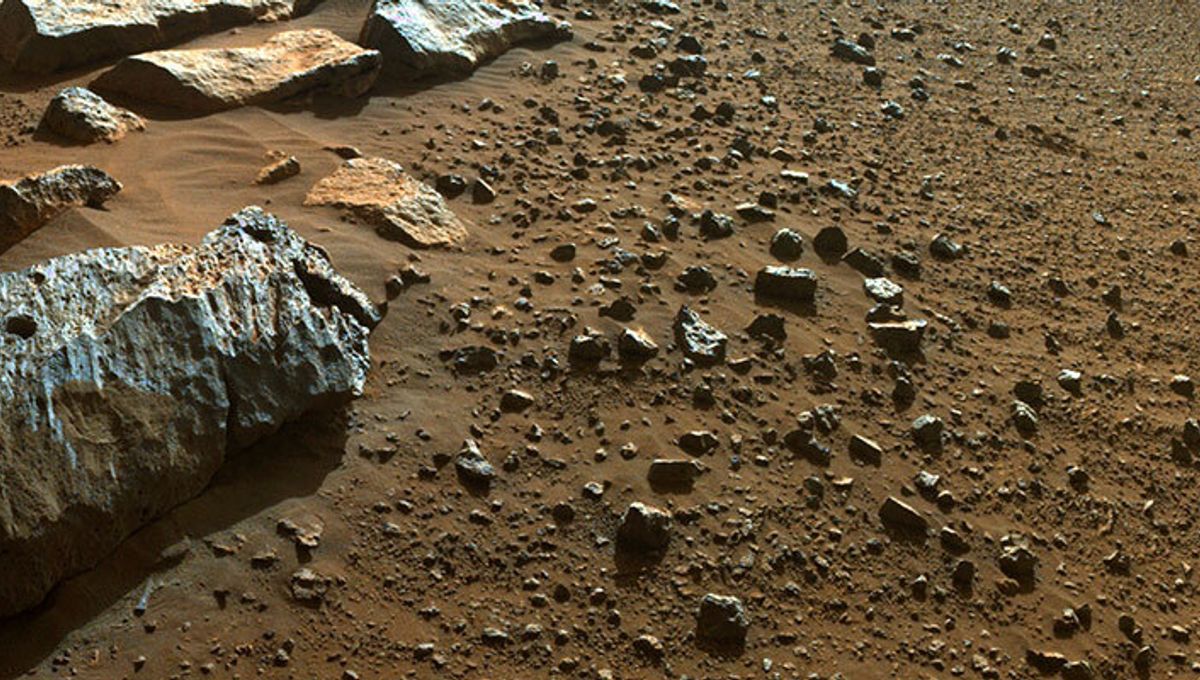
Martian meteorites found on Earth provide crucial insight into the Red Planet. Until the Mars Sample Return missions come back next decade, they are the best way to study Martian materials. They are believed to have been sent flying into the solar system and eventually to Earth by asteroid impacts. Now, new research reveals that the conditions were less extreme than expected.
Researchers from Caltech and the Jet Propulsion Laboratory (JPL) looked at a particular crystal transformation. Martian rocks contain a mineral called plagioclase. This transforms into maskelynite when placed under intense pressure. Martian meteorites have a mixture of these two minerals, suggesting that there is a maximum pressure they have experienced.
The scientists used a “gun” setup to simulate this pressure. They blasted earthly rocks containing plagioclase to higher and higher pressures and then compared them with Martian meteorites to see what is the right value.
“We’re not on Mars, so we can’t watch a meteorite strike in person,” Dr Yang Liu, a planetary scientist at JPL and a co-author on the study, said in a statement. “But we can recreate a similar kind of impact in a lab setting. By doing so, we found it takes much less pressure to launch a Mars meteorite than we thought.”
The conventional estimations using a different method suggested that you’d need 30 gigapascals of pressure to create these meteorites. That’s about 300,000 times the atmospheric pressure at sea level. The new research reduces it by a third, to 20 gigapascals. The findings are in agreement with other Martian high-pressure minerals that could only have formed at less than 30 gigapascals.
“It has been a significant challenge to model an impact that can launch intact rocks from Mars while shocking them to 30 GPa,” co-author Professor Paul Asimow explained. “In this context, the difference between 30 GPa and 20 GPa is significant. The more accurately we can characterize the shock pressures experienced by a meteorite, the more likely it becomes that we can identify the impact crater on Mars from which it originated.”
There are theories suggesting that life might have originated on Mars first before spreading elsewhere in the solar system. Meteorites being dislodged at lower pressures helps with such scenarios.
The study is published in Science Advances.
Source Link: Martian Meteorites Don't Take Much To Be Launched Off The Red Planet